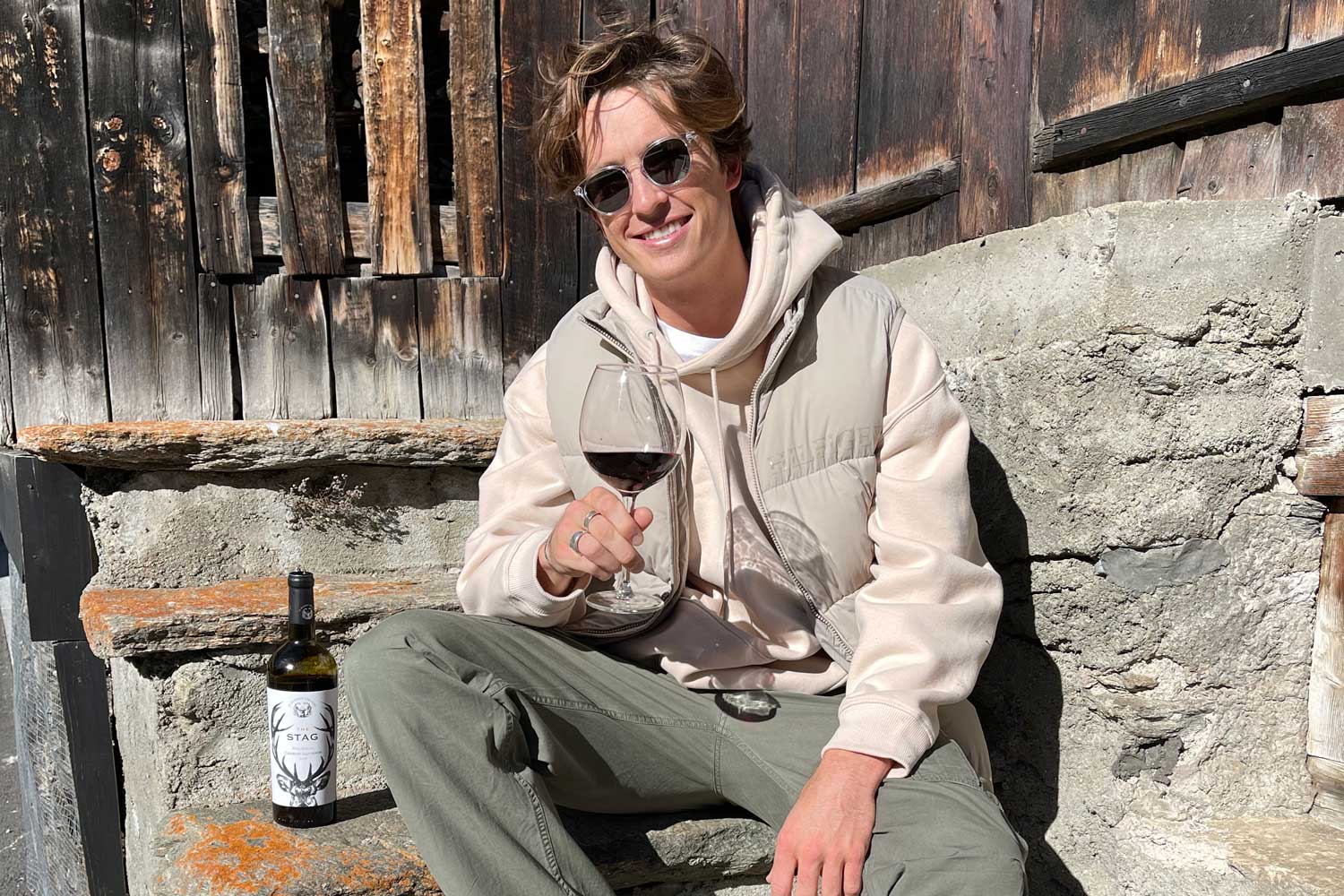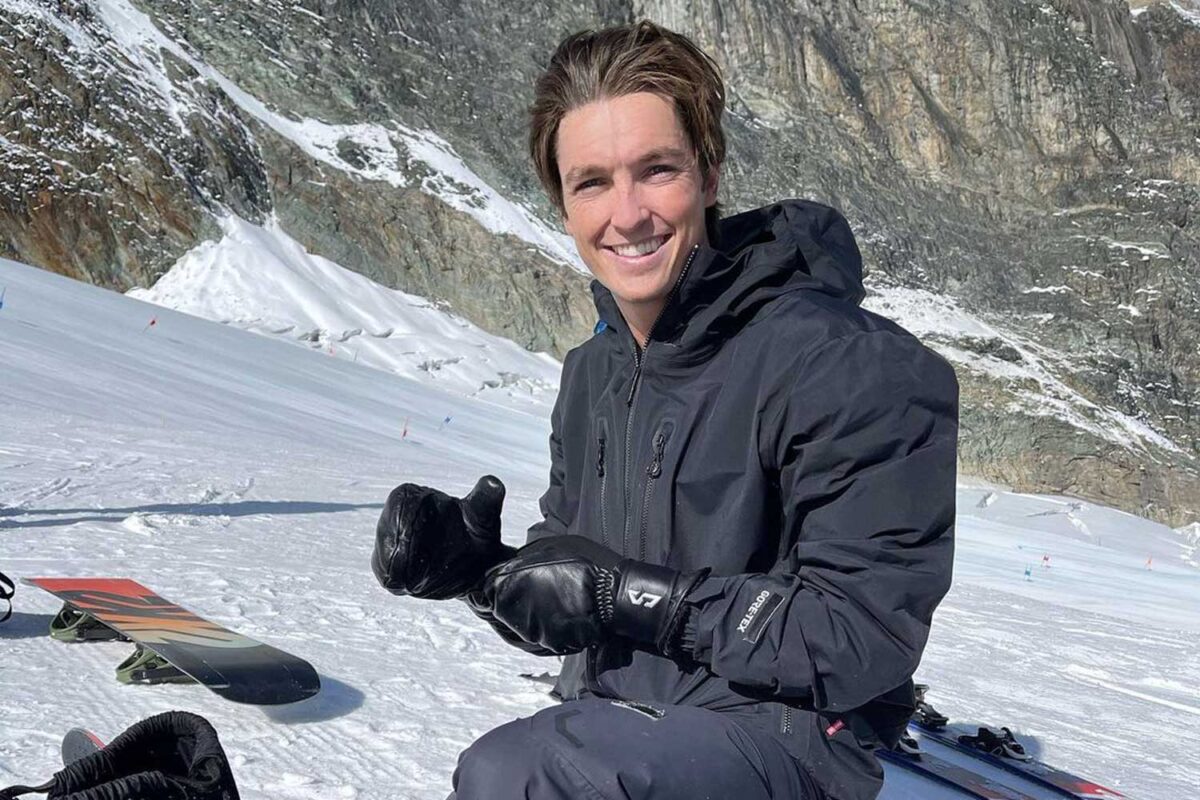Competing in sport at any level requires a healthy dose of blood, sweat and tears. Getting yourself into competitive shape, then having to prove yourself at the highest level is by no means an easy feat, since you have several factors that dictate whether you win or lose. As Will Ferrell’s character Ricky Bobby says in the comedy film Talladega Nights, “if you ain’t first, you’re last.”
Of course, for many of us, we only get to see athletes perform on the world stage at various global events, such as the Olympics or annual world championships. We rarely get to see how much training and commitment athletes have to undergo as they prepare for their events.
In the case of Olympic bronze medalist and three time world champion Australian snowboarder Scotty James – who has recently been unveiled as an ambassador for Victorian winemaker St Huberts’ latest drop, The Stag – you may think it’s all fun and games, being able to perform death-defying tricks in the air. But while we may gasp and cheer at the sheer amazement of these tricks, Scotty has to make sure he’s mentally and physically fit before he even thinks about walking out on the snow.
DMARGE recently spoke with Scotty to gain a closer insight into his training regimes, nutritional habits and how he keeps his mind focused on the task at hand.
Scotty first admits that he constantly has to get himself “ready to compete at a higher level, preparing my body, myself, my mind, so I’m able to perform harder tricks as they evolve over time.”
“Specifically with training, we focus a lot on my core and my legs, we do a lot of core strength, ensuring that we really improve the connectivity between my legs and my core. I also do a lot of work through my hip flexors, since I’m using those quite a lot with my training.”
RELATED: World Champion Snowboarder Scotty James Shares Brutal Core Workout
“We also do general strength work, such as squatting, some powerlifting, we also do a lot of plyometrics, lots of explosive jumping, and a lot of lateral movements. Pretty much all those things work my legs the full 360-degrees. In the halfpipe, there’s not necessarily one specific thing, or one specific movement I can do in the gym, that mimics exactly what I’m trying to do in the halfpipe.”
“Aerobic fitness is also really important, we’re always training at high altitudes. At the moment, the glacier we’re training on is about 3000-3200 metres, so being fit is paramount. I cycle and run, and we actually also hike a lot in the halfpipe, just to practice. All these are really important details for making sure I’m in the best shape possible.”
Naturally, Scotty isn’t always going to find himself having the luxury of endless access to a halfpipe to practice and perform tricks, so how does he navigate this to ensure he’s still able to perform at an elite level?
“It is tough, we don’t always get to ride halfpipes, they’re very few and far between around the world. But really, we can only properly perform the tricks in the halfpipes. Fortunately nowadays there are tools and things we can use, like airbags, so they cut the end of the halfpipe off, you fly out the end and land on the airbag.”
“Obviously this removes a lot of factors and the risk, and eventually you have to do it on the real thing, but you can get on the trampoline just to get yourself familiar and work on your air awareness. But in terms of actually doing the tricks and accomplishing them, it’s really just in the halfpipe.”
You can view some of Scotty’s champion-level training in the video below
Nobody expects a world champion athlete to go it alone and devise their own workout plans, or figure out how to perform tricks by following YouTube videos, and fortunately for Scotty, he’s surrounded by some of the best.
“I have my strength and conditioning coach Will Morgan, he’s part of the Australian Olympic team, he coaches a lot of other athletes too. Then I have my on-snow coach James Jackson, who I’ve been working with for seven years now. He really works on more of a technical point of ‘this is how you do the trick you want to do’, kind of thing.”
“So, I guess in a way, Will sets me up to work with James, and James gets me to do the tricks, and everything I need to do in the halfpipe. Along with a lot of other people in my team who are incredibly supportive. But in terms of physical and mental prep, those two guys are the key contacts.”
Speaking of mental prep, naturally, things aren’t always going to go Scotty’s way. Some tricks may not go as planned, or he may not finish in a position he would’ve wanted to in an event. We’ve previously discussed the ongoing issue regarding mental health in sport, with some industry figures basically expecting those who perform at the highest level to essentially suck it up and get on with the job they’re talented enough to do.
RELATED: The Uncomfortable Truth About Sports’ Ongoing Mental Health Debate
“It’s an everyday challenge. Naturally as human beings we want to run away from fear, it’s something we’re taught to be very mindful of. I think for me, I am fearful a lot. I think I’ve just taught myself really well how to challenge that.”
“It’s really simple, sometimes I come up with these ideas in my head, or a run that I want to achieve, or an event I want to win, and I always say to myself ‘I want to give myself the best opportunity in my life and in my career to find out how far I can go.”
“And if I don’t allow myself to explore that, to its fullest, then I’ll never be completely content, and that really helps me overcome the challenges, because I’ll say ‘well, I’ve got to try this. I’ve got to know what this is going to feel like’. And then, of course, things don’t always work out, but that’s life.”
“I think if you can compartmentalise that, and move forward, that’s kind of my way of being able to do that. I’m definitely scared everyday, but I always say to myself, ‘the day I’m not scared, is probably the day I’ll stop’, because then you’re not as switched on, you’re not respecting the ticks, you’re not respecting the environment.”
“So I shouldn’t really be jumping around and taking it for granted. You’ve got to be all in all the time, otherwise it can be very dangerous.”
As for everything else that goes into Scotty’s routine to give himself the best chance of success? Well, for a start, he doesn’t bother with any of the latest fad diets.
“I don’t follow a specific diet. I think for me, I would consider myself to be very healthy, I’m just very mindful of everything. I think it’s important to have everything in moderation. I’m not going down the keto or the vegan, or a plant-based diet or anything like that. There’s definitely traits within those diets that I love and that I can use to physically enhance me in certain ways.”
“I like to treat myself every now and then, as anyone does, and I like a glass of Stag occasionally. I kind of stay on top of all that stuff and make sure I’m ready to attack as much as possible, physically, as well as mentally.”

Scotty does have a slightly trickier route to success compared to some of his rivals, because he’s quite a bit taller than the rest of them. This can inhibit his ability to perform spins and flips in the air, but he takes this into account and works it into his training.
“I’m very mindful of my weight, because I’m quite tall. I’m 6ft 2in and my competitors are 5ft 5in – 5ft 8in, so naturally they’re able to spin and flip a little bit more efficiently, whereas I’m taller so I’ve got a bit more to throw around. So if I’m mindful of my weight, the things I’m eating are obviously going to affect that, so it’s definitely something I think about.”
Scotty also makes sure he gives himself plenty of rest, “There’s been a lot of new research coming out about sleep and how important it is. People are saying it’s more important than training and nutrition and everything like that. I would say they’re all equally as important as each other, but yeah, sleep is huge.”
“Now I kind of go up on the mountain and train early for 4 – 5 hours, and if I can, I’ll try and have a little nap here and there, whereas before I kind of wasn’t inclined to. But now I’m looking at it more as a performance enhancer, so my perspective has definitely changed a lot on sleep.”
